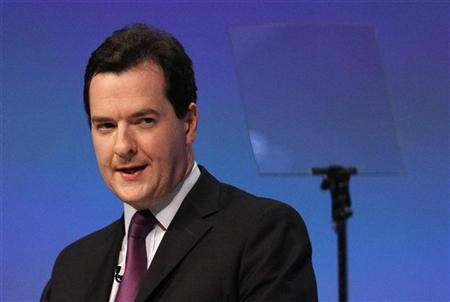Osborne's Budget 2013: Pity George's Impossible Task [BLOG]

I have to admit: I feel some pity for George Osborne.
Like all chancellors, he has the impossible task of trying to match infinite domestic demands with finite resources, to deal with circumstances over which he has little real control and to manage expectations, which can easily morph into 'rights'.
He needs to raise money – and lots of it. This is not just to repay debt: there are many other challenges, not least that of providing for an aging population at one end of the scale and thousands of school places at the other. It must also pay for current needs; we have been living beyond our means and this must be corrected. The Budget 2013 will be painful.
When I was young, the Bank of Mum and Dad could be relied upon to repay my overdraft – but this does not apply to public finances, so we must look to external sources. These tend to require market interest rates and discipline more severe than a parental lecture.
While in the past inflation might be called upon to reduce the burden of a debt pile, many lenders have now grown savvy to this. They are also wary of the possibility to default – they might just say no.
The economy must also grow, and fast, to provide jobs, taxes and to ensure public cohesion. Again that is not easy – how can this be done, and at what cost? What is the appropriate stimulus and how can its potential effectiveness be judged against tax revenues and new jobs? It is a nightmare and the UK cannot be considered in isolation.
There is also the subtle – but real – question of perceived competence. All political parties have shown a lack of touch when designing fiscal and economic policies and, whilst I feel sure (or at least hope) that these were not drafted on the back of the proverbial fag packet, Mr Osborne – or any chancellor for that matter – also needs to show surefootedness, intellectual rigour and real economic understanding. I would like to add success, but I think that is just a matter of luck.
Options are limited so I think that the hoped-for 'big beast' of a budget is dead and the 'abolition of anomalies' may be a softer theme for revenue raising, including:
- An increase in the rates of NIC for the self-employed to compensate for their entitlement to receive the new flat-rate pension
- More attacks on avoidance
- Minor increases in other duties
But these only tinker around the edges: a financial transactions tax (admittedly dismissed) might raise tens of billions of pounds. European cohesion and a relative lack of immediate direct impact might combine to make it a possibility – needs are a must.
And on what would that money be spent? The demands on the public purse are endless. Some options might be:
- Quicker progress in increasing the personal allowance to £10,000 – though this would lower the threshold at which a 40 per cent rate would apply.
- Further incentives to invest in smaller enterprises such as the seed enterprise scheme with potential tax breaks for peer-to-peer lending.
- A relaxation of the stamp duty burden for first time and (possibly) second time buyers.
- Substantial borrowing to stimulate the housing market.
So I do feel for the chancellor, his predecessors and ultimately those who will be his successors, trying to match the debits and credits knowing that he can't, and they won't.
---
Doug Beardon is a senior finance lecturer at LCA Business School.
© Copyright IBTimes 2025. All rights reserved.





















